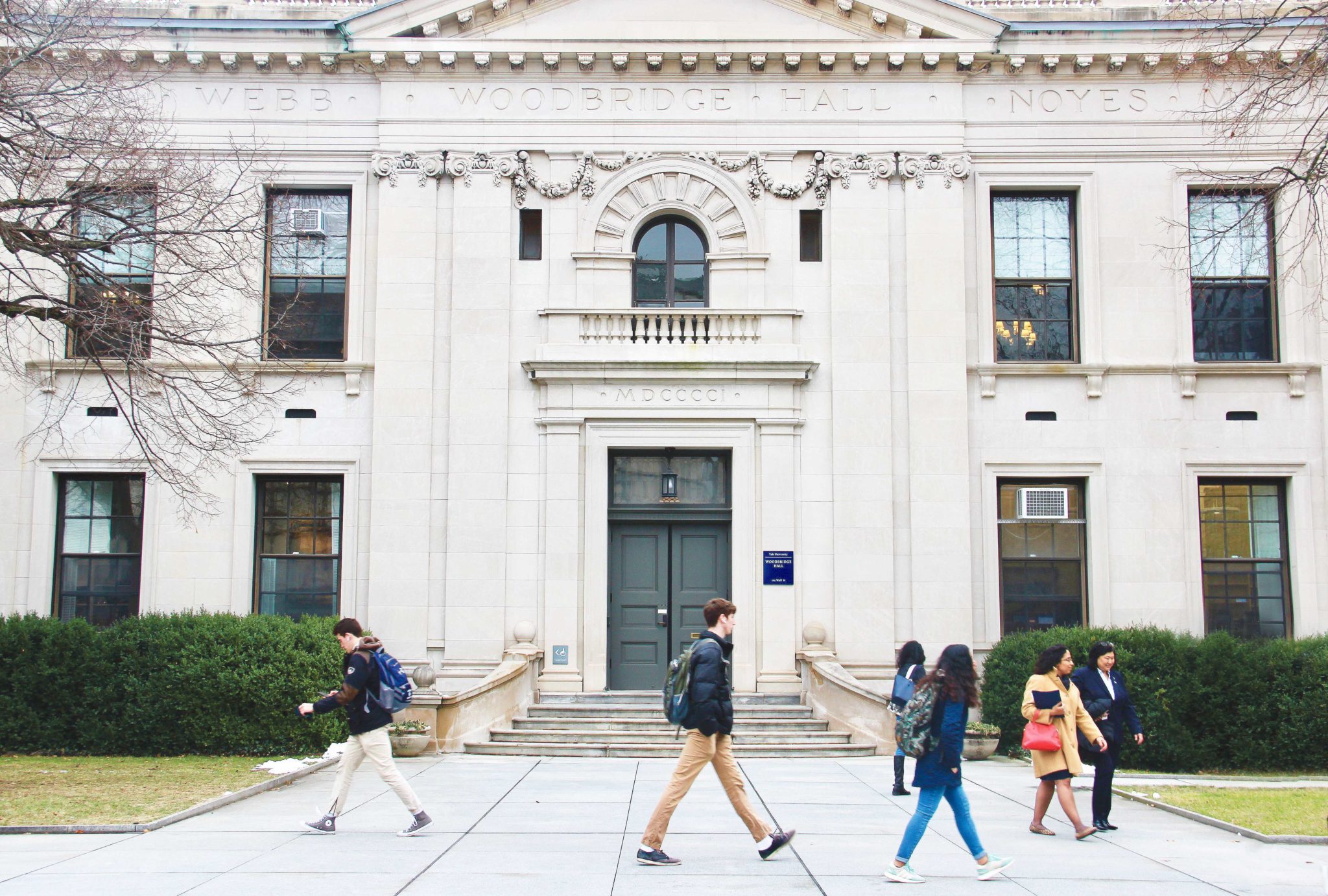
A committee of eight professors formed last spring has been discussing the future of the Jackson Institute for Global Affairs and potential plans to transform the center into a public policy school.
As committees across the University draft a set of recommendations to help University President Peter Salovey formulate his academic priorities, the Provost’s Advisory Committee on the Future of the Jackson Institute, chartered by Provost Ben Polak and chaired by economics and School of Management professor Judy Chevalier, is reviewing the institute’s strategic direction. The committee is considering the Jackson Institute’s existing programs, such as the current global affairs bachelor’s and master’s degree programs, and the appropriate scope of other programs that the institute could offer — such as a professional school in government and public policy. The group will present a report to Salovey and Polak this spring.
“The committee is really asking the question of what should the scale and scope [of the Jackson Institute] be,” Chevalier said. “The Corporation is going to presumably consider a whole wide range of possibilities and opportunities for the capital campaign, and how this fits into that is a potential outcome of our advice but also [of] the wisdom of our Corporation and the provost and the president”
The Provost’s Advisory Committee on the Future of the Jackson Institute is one of many committees across Yale working on identifying priorities for Salovey’s academic vision, as the University prepares a packageable message for an upcoming capital campaign.
The study of public policy at Yale is spread across the University campus, taking place at the Jackson Institute, the Institution for Social and Policy Studies, the School of Forestry & Environmental Studies and the political science department, among other academic units. Since 2016, Salovey has stressed that enhancing the scope of empirical social science research with public policy applications will be a focus of his academic priorities. Last spring, he said in an interview with the News that he might take steps to strengthen such programs with funds from the next capital campaign.
“If we’re going to promote empirically oriented, data-driven social science research that has a bearing on public policy, we’re going to want to find the very best faculty who work in that theme that we possibly could bring to Yale,” Salovey told the News last November. “That means we’re not going to want to constrain what policy issues such faculty work on, so we could see everything from health policy to taxation policy to sustainability and environmental policy.”
As Salovey, the Yale Corporation and the Office of Development devise a list of concrete projects for which to recruit donors, a public policy school could be a centerpiece of the campaign.
Vice President for Global Strategy Pericles Lewis said the University is unlikely to reach a decision on whether to establish a public policy school for several years.
Asked what the Provost’s Office had told the committee about the financial feasibility of the public policy school, Chevalier said that cost is a factor but added that there is no question that the University can afford the school. Still, financial decisions imply tradeoffs, she added, and her committee is considering those tradeoffs as it drafts its recommendations.
Beyond Chevalier, the committee includes political science department chair Steven Wilkinson, history professor Timothy Snyder, F&ES professor Michelle Bell, economics professor Steven Berry, economics professor Pinelopi Goldberg, dean of social sciences Alan Gerber and law professor John Witt.
Gerber is also chairing a University-wide committee to consider data-driven public policy research across departments, educational policy programs and research infrastructure.
“We’ll certainly have some recommendations, but we’re going to discuss a lot of options and different tradeoffs and ways that they can go about things,” Chevalier said.
But when asked about what potential tradeoffs could arise from creating a public policy school, Chevalier said she did not want to speak for her committee at this preliminary stage.
A number of administrators — including Polak, Chevalier, Lewis, Gerber and Assistant Vice President for Strategic Analysis and Institutional Research Timothy Pavlis — have visited Harvard’s John F. Kennedy School of Government to study how other universities approach public policy and international affairs.
According to Chevalier, some committee members have also visited Princeton University’s Woodrow Wilson School of Public & International Affairs, the Watson Institute for International and Public Affairs at Brown University, Tufts’ Fletcher School of International Affairs and the Weatherhead Center for International Affairs at Harvard.
Chevalier added that committee members have met with Dean of the Kennedy School Douglas Elmendorf, among other Kennedy School administrators, as well as with Yale undergraduate and graduate students at the Jackson Institute.
Both Wilkinson and Witt referred comments about the committee to Chevalier. Asked about whether the Political Science Department would work with a Yale public policy school, Wilkinson said his department will continue to work cooperatively with the Jackson Institute and the Institution for Social and Policy Studies in the future.
Founded in 1976, the Yale School of Management was the last professional school established at the University.
Hailey Fuchs | hailey.fuchs@yale.edu







